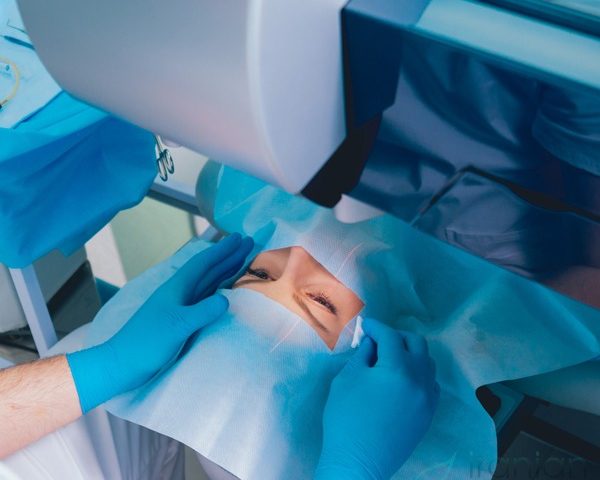Are You a Candidate for lasik eye surgery?

Good candidate for Lasik surgery
Candidates for laser eye surgery should generally meet the following criteria:
- Age: Candidates must be at least 18 years old.
- General health: LASIK candidates must be in good general health, and should not have certain health problems, including uncontrolled diabetes, autoimmune or collagen vascular disease, or take any medication or have any condition that compromises the immune response.
- Eye health: Candidates should be free of eye diseases including keratoconus, glaucoma, cataracts, corneal disease and certain retinal and optic nerve diseases. LASIK eye surgery candidates should not have certain eye conditions including herpes simplex and herpes zoster.
- Eyeproblems: LASIK patients should make their eye doctor aware of certain eye problems including amblyopia (lazy eye), strabismus (muscle imbalance), or any recurrent, residual or active eye conditions that may influence healing. Other conditions that should be discussed with the doctor include keloid scarring with previous surgical healing, back problems and claustrophobia. Please make your eye doctor aware of any mental health conditions, as these may also affect your LASIK surgery or recovery.
Read more about: Intralase Lasik
- Eyeinjury: Patients should not have any eye infections or injury.
- Nursing/pregnancy: Candidates should not be nursing or pregnant when undergoing the LASIK procedure. Hormones may affect the stability of your prescription, so pregnant or nursing women are not eligible to pursue LASIK surgery until three menstrual cycles after nursing has been discontinued.
- Dry eye condition: Patients should not continuously suffer from dry eyes.
- Stablevision: Candidates’ vision must be stable for at least one year prior to the procedure date.
- Contacts: Prior to your LASIK surgery consultation and LASIK procedure, you must not wear contact lenses for a certain length of time. The precise length will be determined by your doctor on an individual basis. This ensures corneal stability and accurate assessment of your prescription prior to the LASIK surgery procedure.
- Corneal thicknessplays an important role in determining proper candidacy for LASIK. Due to the nature of the procedure, candidates must have a minimum corneal thickness of approximately 0.5 mm.
Read more about: Facts about lasik risks
Determination for LASIK candidacy has to be made on an individual basis, taking into consideration your medical history, prescription and other health factors. We recommend (before LASIK surgery) that you take advantage of TLC’s complimentary pre-procedure consultation at one of our laser vision eye surgery centers. This consultation, or a similar screening from a TLC-affiliated doctor, is mandatory before LASIK surgery at TLC Laser Eye Centers.
If the eye doctor determines you are not a good LASIK candidate today, you may still be a good candidate in the future. The technology for laser eye surgery is constantly being enhanced, enabling people with higher and more difficult prescriptions to be good LASIK candidates. Laser eye surgery is not for everyone, however, and some patients (those with certain diseases of the eye involving the cornea and retina) will never be candidates.
Read more about: During Lasik eye surgery
Here are the general age-related guidelines that health professionals take into account with vision correction procedures:
- If you are younger than 18, eye surgeons prefer to hold off on performing surgery. This is due to the fact that it’s normal for vision to change into early adulthood. After the age of 19, assuming your eyes are in good health, you’ll likely be given the go ahead to get a procedure.
- If you’re older than 40, then you may be suitable for a different kind of procedure. If you’ve noticed blurry reading vision, it’s time to find out what the issue at hand is (presbyopia). Check with your doctor: They may propose an alternative solution for your eyesight. Many people go their entire lives without needing reading glasses.until reaching a certain age.
- For people who have cataracts (typically affecting people aged 70 and over), a lens replacement procedure may be the best solution. Cataract masses of proteins that gather on the surface of the eye’s lens will affect more than half of the senior population. While a standard LASIK surgery itself cannot correction a condition like cataracts, other procedures available can improve vision at this stage.
Who is not a good candidate for Lasik?
Many patients are not good candidates for laser vision correction because of systemic or ocular disease. Conditions, such as cataracts, diabetes or autoimmune diseases like lupus or rheumatoid arthritis, may make LASIK and other laser vision correction options not a good choice for some patients. Also, certain medications, such as corticosteroids, acne medications, and pregnancy can affect the healing process.
Read more about: Epi-lasik eye surgery
How bad do your eyes need to be for Lasik?
To qualify for the newest LASIK technology (topography-guided LASIK), your refractive prescription should fall within the following:
- Up to -8.0 diopters of nearsightedness, or
- Up to -3.0 diopters of astigmatism, or
- Up to -9.0 diopters nearsightedness with astigmatism; and,
- The amount of nearsightedness with or without astigmatism in your eye did not change by more than 0.5 diopters during the year before your pre-operation examination.
Read more about: Lasik Eye Surgery

